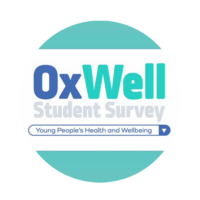Mood disorders
-

Prevention and treatment of depression in children and adolescents
Emeritus Professor Pim Cuijpers – I will give an overview of the research on preventing the onset of major depression in youth and will show that prevention is indeed possible but also faces important challenges in terms of effectiveness and implementation.
- Event type
- Introductory and Update Session
- Location
- LIVE STREAM
-

From Valencia to Understanding the Mental Health Impacts of Floods on Children and Young People
Floods are the most common type of natural disaster, with 1.81 billion people facing significant flood risk worldwide, particularly in low- and middle-income countries. Among those affected, children and young people are especially vulnerable due to limited coping strategies compared to adults and high dependence on caregivers. Despite this, research on the impacts of floods on their mental health remains scarce.
Read more -

The Emotional Toll of Insider Qualitative Research
In this blog, Tavgah Jafar explores the emotional challenges of insider qualitative research, drawing from their personal experiences. Tavgah reflects on the unexpected emotional impact and share lessons learned, alongside practical advice for new researchers to manage these challenges.
Read more -

Professor Bernadka Dubicka – Editor in Chief
Editor in Chief, Bernadka qualified in medicine and psychology at the University of London, completing child psychiatry training and her thesis in adolescent depression at the University of Manchester. She is the chief investigator of the National Institute of Health Research multi-site BAY trial of web-based Behavioural Activation in young people with depression (2022-26).
Read more -

Chronotype and Depression in Adolescence
We know that there is a bidirectional association between sleep duration/quality and depressive symptoms in youth. In adult populations depressive symptoms and circadian rhythms (sleep chronotype) have also been linked. In this paper, we established an association between chronotype and depressive symptoms in middle adolescence, independently of poor sleep and prior mental health difficulties.
Read more -

Professor Stephan Collishaw
Professor Stephan Collishaw serves as co-director for the Wolfson Centre for Young People’s Mental Health and Professor in the Child and Adolescent Psychiatry Section in the Division of Psychological Medicine and Clinical Neurosciences at Cardiff University.
Read more -

Annual Research Review: Neuroimmune network model of depression: a developmental perspective
Open Access paper from the JCPP – ‘We have three goals for the present paper. First, we extend neuroimmune network models of mental and physical health to generate a developmental framework of risk for the onset of depression during adolescence. Second, we examine how a neuroimmune network perspective can help explain the high rates of comorbidity between depression and other psychiatric disorders across development, and multimorbidity between depression and stress-related medical illnesses. Finally, we consider how identifying neuroimmune pathways to depression can facilitate a ‘next generation’ of behavioral and biological interventions that target neuroimmune signaling to treat, and ideally prevent, depression in youth and adolescents.’ Robin Nusslock (pic) et al.
Read more -

Interplay of early negative life events, development of orbitofrontal cortical thickness and depression in young adulthood
Open Access paper from JCPP Advances – ‘Using a complete longitudinal design with four time points, we examined whether NLE during childhood and early adolescence predict depressive symptoms in young adulthood through accelerated OFC thinning across adolescence.’ Lea L. Backhausen (pic) and Jonas Granzow et al.
Read more -

Online Behaviours and the Impact on Mental Health: Insights from the OxWell Student Survey
The ‘Insights from the OxWell Student Survey‘ series is a new mini-in conversation series that will explore the OxWell study and the impact of its findings for parents, teachers, policymakers and mental health professionals.
In this episode, Dr. Simona Skripkauskaite and Dr. Holly Bear comment on the findings from the OxWell survey regarding online behaviours and the association with young people’s mental health and wellbeing.
Read more -

Mood and Anxiety Disorders in the Children of Depressed Parents
In this Papers Podcast, Dr. Vicky Powell discusses her JCPP Advances paper ‘Following the children of depressed parents from childhood to adult life: A focus on mood and anxiety disorders’. Vicky is the lead author of the paper.
Read more